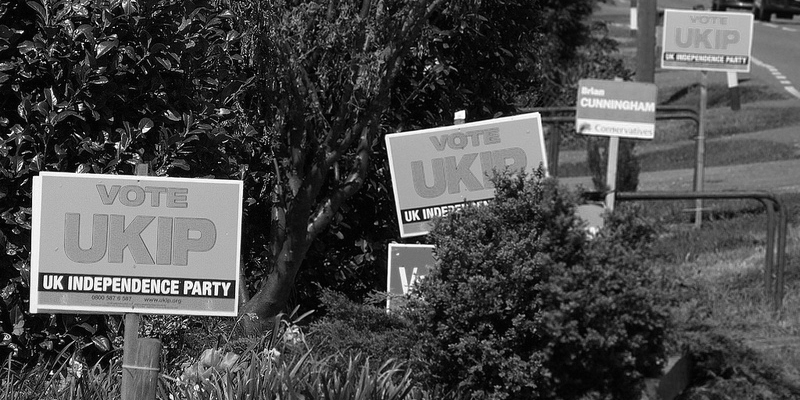Are the cracks in UKIP’s shell beginning to show?
UKIP has emerged as a quite a force in British politics, winning two parliamentary by-elections in 2014 and on course to achieve a historic share of the vote at the next general election. However, while there is no real way of...
UKIP has emerged as a quite a force in British politics, winning two parliamentary by-elections in 2014 and on course to achieve a historic share of the vote at the next general election.
However, while there is no real way of knowing what the political landscape will look like post 7 May 2015, we can already begin to see the cracks which could prove to be problematic for the ‘people’s army.’
For quite some time now, UKIP have sustained themselves as a single issue party focusing on immigration. However, in order to establish themselves as a credible party of government they have been forced to consider other policy areas as well as face further scrutiny on their existing ones. And at times they become unstuck. When pressed on immigration during the Rochester and Strood by-election, where I am Labour’s prospective parliamentary candidate, Mark Reckless suggested UKIP would support repatriation for certain migrants. A media frenzy followed and the next day Nigel Farage renounced any suggestion that this was part of the UKIP agenda.
Interlinked with this is the party’s attempt to be all things to all people. The election in Rochester and Strood started off, as expected, with UKIP firmly focusing on immigration, but as it became apparent that people had real concerns about the healthcare and the local hospital they made the NHS their number one priority.
Similarly to the Lib Dems before 2010, it is easy for UKIP to pitch themselves as the outsiders, not part of the establishment and with ability to offer any alternative. Whilst this may allow them to gain popular support in the short term, it is an unsustainable tactic.
Furthermore, in recent months UKIP have come under a bit of an identity crisis. They began as party based largely on libertarian values that simply wanted independence from the European Union; predominately threatening Conservative party Eurosceptics and stealing votes from the right. Over time and under Farage’s leadership that focus has shifted on the wider immigration debate and in recent months an attempt to pitch themselves as the working man’s party. And this has resonated with the electorate. During the by-election I spoke to numerous people who stood firm that they never have and never would vote Conservative, as the party was elitist and out of touch. For them the choice was a simple one between UKIP and Labour.
Whilst this fact is a wake-up call for those within the Labour movement, who see UKIP as an electoral advantage on course to split the Tory vote, I suspect it will not sit comfortably for too long with the party’s leadership. The ideological basis of UKIP does not have its roots in left-leaning values and neither do its newest recruits – Douglas Carswell and Mark Reckless. These divisions will only become starker and we will see a rift between those who lead the party, its membership and the expectations of UKIP voters.
So what does this mean for the Labour party? Can we live in hope that the UKIP project will implode after May 2015 and we simply need to bury our heads in the sand until this happens. The answer is of course ‘no’.
It is commonly acknowledged that we are heading towards one of the most unpredictable elections we have seen for quite some time with no one party drawing in mass support, whilst the Greens, SNP, UKIP and even Russell Brand increase their appeal. Despite the unpopularity of the coalition government, support is not flooding back to Labour.
So what do we do?
We begin by taking the immigration debate head on. The Tories and UKIP spent the by-election fighting over a myth, that we can shut ourselves off from the ‘big bad world’ to solve our problems. We should not give any legitimacy to this argument and shouldn’t be afraid to say that while immigration comes with its setbacks, it is ultimately good for Britain.
Secondly we cannot treat any seat as ‘safe’. It is no coincidence that the areas in Rochester and Strood where UKIP did particularly well had, over the years, felt a sense of abandonment by Labour. We cannot allow this feeling to resonate in any community across the country.
Finally we shouldn’t be afraid to be the party of aspiration. The country needs a party that can offer a hopeful future. A future where their children will get an apprenticeship or go to university, where they can get a better-skilled, better-paid job or start a small business and become their own boss. We are the party to deliver these aspirations and we should not be afraid to say so, because this is the essence of our values.
Naushabah Khan is Labour’s parliamentary candidate for Rochester & Strood

